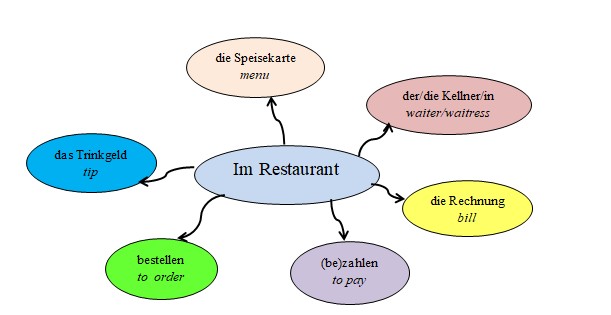If you are wondering how to learn new words and improve pronunciation in German, you can find valuable tips for enhancing your German vocabulary and pronunciation in this lesson. These tips can help you overcome language barriers with ease.
Thank you for reading this post, don't forget to subscribe!CONTENTS
Learning new words and sentences
How to improve Pronunciation

Learning new words and sentences
Remember to study often, even if it’s just a little bit at a time.
When you encounter new words, write them down on a piece of paper or create flashcards that you can carry with you.
Practice the words when you have spare time, like when you’re waiting in line, at the doctor’s office, or on public transportation.
When learning nouns, always remember to learn them with their articles and in their plural forms.
For example, learn: “das Haus” as well as “die Häuser.”
When learning verbs, make sure to learn them in the infinitive, 3rd person singular, and perfect forms.
For example, for the verb: “sprechen,” learn “er spricht” and “er hat gesprochen.”
Lastly, try to create sentences with the words you are learning in order to remember them better.
Words are easier to remember with context.
For example:
sprechen
Er hat gestern mit dem Chef gesprochen. – He spoke to the boss yesterday.
Er spricht jetzt mit dem Chef. – He is now talking to the boss.
Learn words by topic, for example, topic: In a restaurant.
Collect words and phrases related to a restaurant, reserving a table, ordering, paying…
Imagine the situations you might find yourself in and what vocabulary you need for that situation. Ask yourself what words you know, for example, in your apartment. Do you know how to say table, chair, cupboard, fridge….
If you don’t know, learn them and repeat them when you find yourself in that space. You can apply the same to other spaces
For example:
workplace, school, your environment while walking around, and where you live.
Make cards, on one side the word that you want to learn, and on the other side behind the translation of that word. Ask your friend or family member to test you.
You can also make Wortigel (Word hedgehog):

How to improve Pronunciation
Set a goal to learn a certain number of sentences each day, and practice saying them out loud several times. You can choose 2, 3, or 4 sentences, depending on what works for you. Write them on a piece of paper or make flashcards to carry with you for practice throughout the day.
Write down any words you find difficult to pronounce and practice saying them multiple times, both individually and within the context of the whole sentence.
If you’re unsure about the pronunciation, ask your German teacher for help or find a native German speaker to assist you. You can also look for a German dictionary online, such as the free dictionary.com or dict.com , where you can find audio recordings of words.
When learning a new word or phrase, read it aloud slowly until you feel comfortable, and then gradually increase your speed until you can say it at a normal pace.
Experiment with different ways of pronouncing words, phrases, and sentences – try saying them loudly, quietly, slowly, and quickly.
Feel free to practice saying the sentences with various emotions. Try speaking them authorizing, angrily, dissatisfied, sadly, interestedly, kindly, and more.
Visualize different situations while practicing, such as interacting with a shop assistant, talking to an acquaintance, speaking with a child, or conversing with a colleague at work.
Click on:
Grammar Contents



